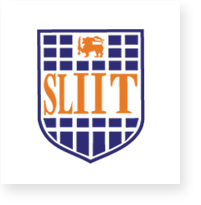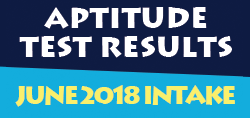Quality assurance (QA) is an essential element that had gradually gained serious attention amongst the global Higher Educational Institutions (HEI). The term QA, although a borrowed terminology from the industry, its relevance and absolute necessity in the current context of Higher Education (HE) is unquestionable. Providers of higher education have a primary responsibility for the quality of their provision and its assurance.
Quality assurance needs to be a continuous, on‐going process. Everyone working at SLIIT must take responsibility for building it into their day‐to‐day, routine activities. This can be brought about only through internal QA. Hence, internal QA is considered as the corner stone of QA in higher education.
Internal Academic Audit is an important element in the SLIIT’s strategy for assuring the quality of learning provided to students and the standards of programmes and awards. It is an explicit provision of the SLIIT’s quality assurance strategy that faculties and their departments take responsibility for assuring quality of its teaching, research and services.
The Unit of Audit:
The primary unit of academic audit is the Department. There will be five basic areas that will be examined in an academic audit. These areas are:
a) Application of QA Instruments
b) Designing Programme curricula
c) Designing teaching and learning
d) Developing and using student assessments
e) Implementing quality education
- Application of QA Instruments: The Institution uses multiple instruments for quality assurance. Departments are encouraged to innovative more efficient instruments in addition to the instruments in vogue. The quality assurance instruments currently in use should include:
- Rigorous academic staff recruitment
- Peer evaluation
- Student evaluation
- Reputation surveys
- Designing Programme Curricula: Curriculum issues assesses the effectiveness with which curricula are planned, design and approved to facilitate achievement of the ILO. Dimensions of quality in curricula include:
- Reliability: Extent to which knowledge learnt is correct, accurate and up-to-date
- Conformance: Extend to which the curriculum meets established standards and benchmarks
- Durability: Depth of learning
- Efficiency: Extent to which the curriculum is applicable to the future careers of students
- Designing Teaching and Learning: The quality of teaching and learning is central to achievement of ILOs. Dimensions of quality in teaching and learning include:
- Responsiveness: Willingness and readiness of staff to help students
- Understanding Customers: Understanding students and their needs
- Access: Extent to which staff are available to help students
- Competence and Delivery: Theoretical and practical knowledge of staff as well as other presentation skills
- Courtesy: Emotive and positive attitude towards students
- Communication: How well lecturers and students communicate in the classroom
- Developing and Using Student Assessment: Student assessment is integral to demonstration of achievement of IOLs. Evaluation of the assessment process and standards of achievement of the ILOs determines the appropriateness and effectiveness of the system in vogue. Quality dimensions in student assessment include:
- Reliability and Validity: Measurement of the attainment of ILOs
- Integrity: Extent to which examination materials are secure
- Testability: How fair assessment represents a subject of study
- Redress: Handling of student complaints and solving them
- Implementing Quality Education: This section illustrates how each Department/faculty should mainstream quality assurance and enhancement measures in its academic activities.
Following Student performances are necessary to observe:- Retention rate in first year - Quality of programme and tuition the SLIIT offers to Students
- Graduation rate - Measures productivity of the SLIITs programmes
- Average time to graduation - Good indicator of teaching support students receive








